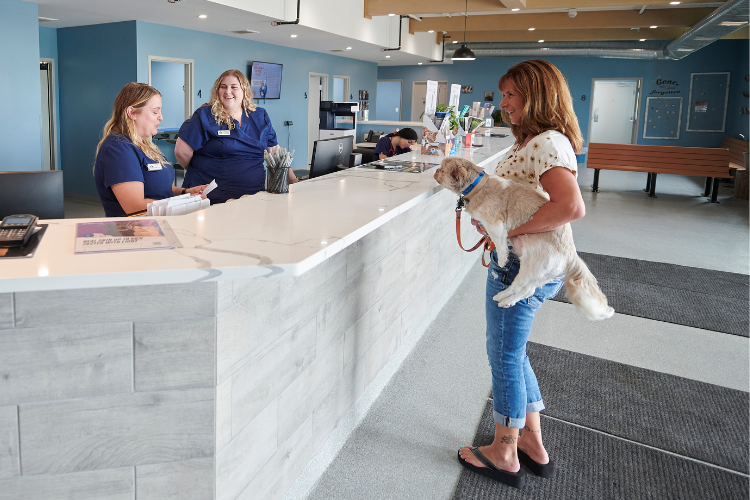
Managing Burnout in the Workplace
The expectation that we can be immersed in suffering and loss daily and not be touched by it is as unrealistic as expecting to walk through water without getting wet.
This sort of denial is no small matter. The way we deal with loss shapes our capacity to be present in life more than anything else. The way we protect ourselves from loss may be the way in which we distance ourselves from life. We burn out not because we don’t care but because we don’t grieve. We burn out because we’ve allowed our hearts to become so filled with loss that we have no room left to care.
Burnout is a common, all too familiar feeling within the veterinary profession. Busy schedules often mean running from appointment to appointment without the ability to deal with the difficult emotions/interactions that may pop up in the everyday work cycle. “I’ll deal with it later” turns into empathetic exhaustion.
Without the ability to grieve or process difficult emotions, your ability to properly care for patients may be diminished.
While those in the industry are trained to care for animals, no one teaches them how to handle the grief, stress, and trauma that come with the job, both from clients and from ourselves. Empathy is a strength, but it can also leave you drained if you don’t balance it with self-care.
Burnout shows up as exhaustion, cynicism, and feeling disconnected from your work. On top of that, you may also face traumatic stress, whether directly or indirectly (witnessing clients’ pain). Over time, these experiences can chip away at your joy, making it harder to feel fulfilled in your career.
This is why it is important to avoid burnout before it can begin. Try utilizing the following steps to minimize your mental load:
-
Work with purpose
-
Perform a job analysis and eliminate or delegate unnecessary work
-
Give to others
-
Take control and actively manage your time
-
Get more exercise
- Learn how to manage stress
How can you improve your well-being?
-
Redefine the term “caregiver” and remember that givers themselves must also be cared for
-
Increase your own self-care to mitigate compassion fatigue
-
Set your own personal boundaries
-
Begin self-affirmation: “You were meant for this profession – it should be meaningful to you”
Share
Related blogs

Help Clients Extend The Life Of Their Pet's Dental Cleaning
As veterinarians know, maintaining dental health between visits is just as important as the cleaning itself, and that’s where ProDen DentalCare can make a meaningful difference. Learn more about best practices for use of ProDen and how to keep oral health at the top of a client’s mind.
